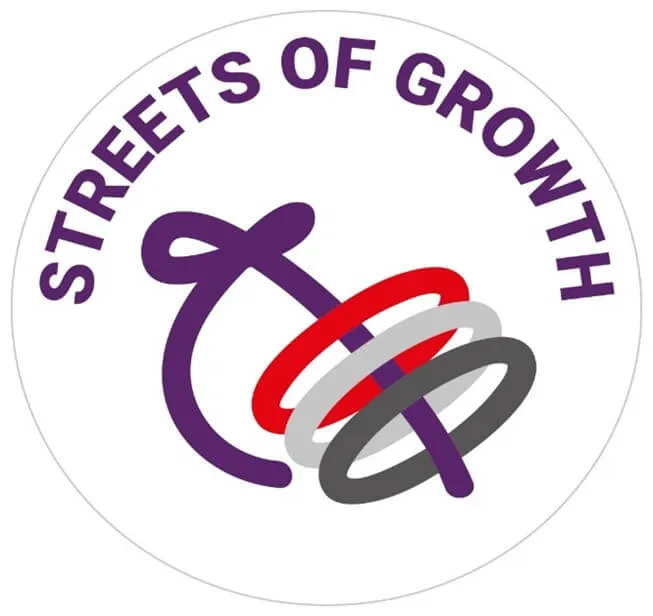
Streets of Growth is a community-led charity, based and operating in the London Borough of Tower Hamlets. We set up in 2001 as a founding group of adult and young neighbours to tackle the youth disaffection, gangs, and associated knife crime in our neighbourhoods. This included addressing the unhealthy dependency upon organisations to ‘fix’ our streets.
However, our first big challenge came from the very community development professionals who were more fearful we would, and I quote, ‘take possible funding streams and focus away from their organisations,’ rather than hear, learn and partner with us as the very community.
Many experts argue that often, it is a fear of gangs and crime that leads to young people carrying knives. Our experience has revealed a multitude of interconnecting reasons as to why a young person might become involved in knife crime. Amongst these reasons, may be a lack of confidence in their community, and a distrust of the ability of community development professionals, the police or the criminal justice system to protect them. Young people might be experiencing violence at home, or simply feel discriminated against in terms of employment opportunity. This in turn leads to exclusion from particular career choices, and at best only poorly paid employment. Such isolation leads to feelings of displacement, economic isolation, and all that goes with it. Such lack of fulfilling employment, and poverty, then leads to some young people resorting to criminality. It is then an easy path to being pressured into gangs for safety or choosing gangs to further their earlier criminal choices.
Case Study:
A young adult, named here as Jonathan, had a long-term unemployed father, a mother working two low paid jobs, and an older brother in prison for drug dealing. Jonathan had hopes of becoming a mechanic. However, he was pressured into maintaining his brothers drug line whilst he was away serving time. Other drug dealers robbed him at knife point. He never realised how this had traumatised him. He simply armed himself with a knife because he saw that as the ‘normal’ thing to do given the circumstances he found himself in.
Jonathan began to mistrust the community, and professionals with whom he came in contact, and used evasive tactics to avoid any organisational remedies. Our system of approach is called the Appropriate Intervention Bridging Model©. At Streets of Growth, we train and condition ourselves for starting with the resistance of ‘no’ in order to break the ice and cycle. It took several weeks of continuous strategic effort, turning up at Jonathan’s house, going to where he hung out on the council estates day and night until he began to allow an initial conversation. It was then, several months later, before we managed to get him to come into our intervention and enterprise Centre. Even then, he would promise to meet us again but would fail to show up. But we relentlessly followed up. When he did turn up it wasn’t long before his mobile phone went off and was being called back out onto the streets to ‘take care of business.’
So, we designed a one-day taster project on the theme of a career in motor mechanics. We then followed that up with a placement outside of the borough with a car mechanic company. This led to Jonathan being supported into college and then into employment. This may sound like a linear fairy-tale, but there is a reality to this. This whole process from start to finish actually took 3-years of supported intervention for Jonathan to develop and demonstrate the emotional resilience required for taking positive control of his own life. There were a number of relapses along the way that threatened to wreck the process, and we often faced intimidation from those trying to block Jonathan from moving on when we were supporting him at street level with such peer pressure dynamics. These are the very pinch points and tricky encounters many can fear and avoid, and many professionals are most absent. And yet, for us it is where most of the opportunities and tipping points occur. Experiencing how we dealt with such tensions helped coach Jonathan in how to do it himself. He has since moved out of the borough and has a wife and two children – and is still a mechanic.
Written by Darren Way – Founder
For more information: www.streetsofgrowth.org
